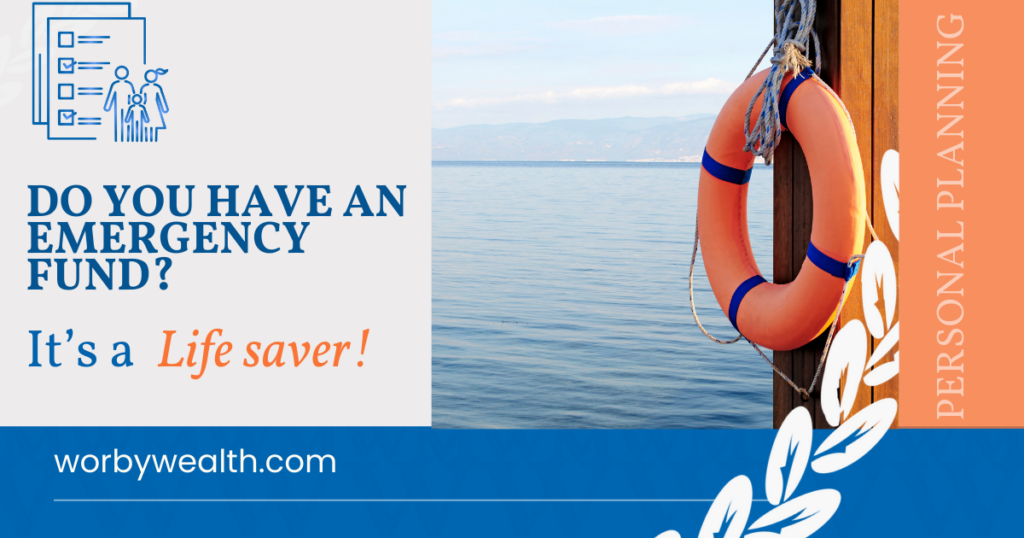Chris Worby, a reputable financial advisor and provider of Wealth Management services in Regina, is a trusted professional with more than two decades of expertise. Worby Wealth Management caters to individuals, families, and business owners in the Regina area and is dedicated to delivering exceptional financial and wealth management services. The team at Worby Wealth Management is attentive, crafting personalized financial plans to meet clients’ unique needs. In his most recent blog on the importance of focusing on your financial health, Chris Worby delves into the significance of maintaining an Emergency Fund.

Do You Have an Emergency Fund? How Much Should You Have?
 Life is full of surprises, and not all of them are pleasant. That’s why having an emergency fund is crucial to financial planning. In this blog post, we’ll explore the importance of having an emergency fund, the reasons you should consider having one, and provide guidance on determining the right amount for your unique circumstances.
Life is full of surprises, and not all of them are pleasant. That’s why having an emergency fund is crucial to financial planning. In this blog post, we’ll explore the importance of having an emergency fund, the reasons you should consider having one, and provide guidance on determining the right amount for your unique circumstances.
TOP 3 Reasons to have an Emergency Fund
Unexpected Expenses are Inevitable: Life throws unexpected curveballs, whether a sudden car repair, a medical emergency, or unexpected home maintenance. An emergency fund is a financial safety net to help weather these storms without disrupting your overall financial stability.
Job Loss and Income Disruptions: Economic downturns, industry changes, or personal circumstances can lead to job loss or income disruptions. An emergency fund provides a cushion during such periods, giving you the financial breathing room needed to find a new opportunity without falling into financial distress.
Avoiding Debt and High-Interest Payments: Individuals might use credit cards or take out loans to cover unexpected expenses without an emergency fund. This can lead to a cycle of debt with high-interest payments, potentially creating a long-term financial burden
Determining How Much You Should Have
Financial experts commonly recommend having three to six months’ worth of living expenses in your emergency fund. This provides a reasonable buffer to cover essential costs during a period of financial uncertainty
- Start by evaluating your monthly living expenses, including rent or mortgage, utilities, insurance, groceries, transportation, and other essential costs. Be thorough in your assessment to ensure you capture all necessary expenditures.
- Multiply your monthly living expenses by the recommended number of months (e.g., three to six) to determine your target emergency fund amount. This gives you a tangible goal to work towards.
Your ideal emergency fund amount may vary based on your personal circumstances. Factors such as job stability, the presence of dependents, and specific financial goals should be considered. For instance, those with more uncertainties may opt for a larger fund.
Building an emergency fund doesn’t have to happen overnight. Start by setting smaller goals, such as saving one month’s worth of expenses, and gradually increase the target as you become more financially stable. – Chris Worby
Do not think of an emergency fund as a luxury; it really should be viewed as a necessity. It provides the financial security needed to navigate life’s uncertainties without jeopardizing your long-term financial goals. Assess your monthly expenses, set realistic goals, and prioritize building and maintaining your emergency fund. Remember, financial peace of mind begins with being prepared for the unexpected. Start today, and take control of your financial future.
Contact Worby Wealth Management Regina so we can review your personal plan!
TRUSTED REGINA FINANCIAL ADVISOR Chris Worby from Worby Wealth Management helps you live your dream!

